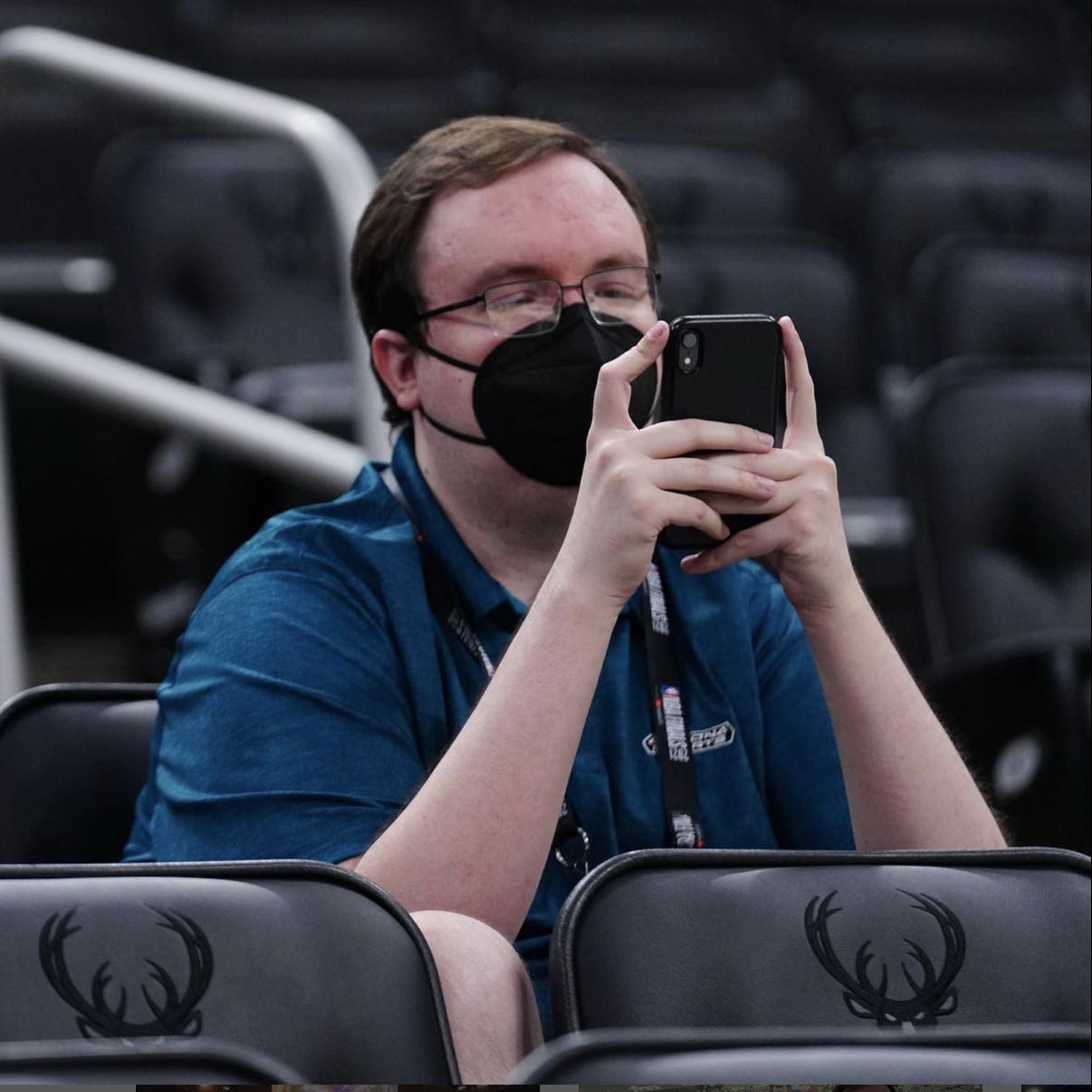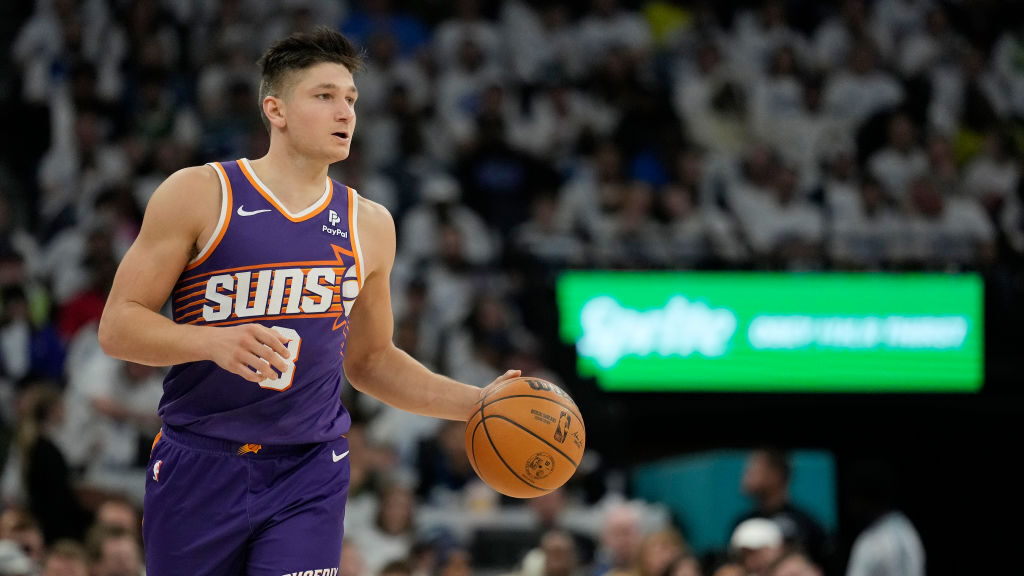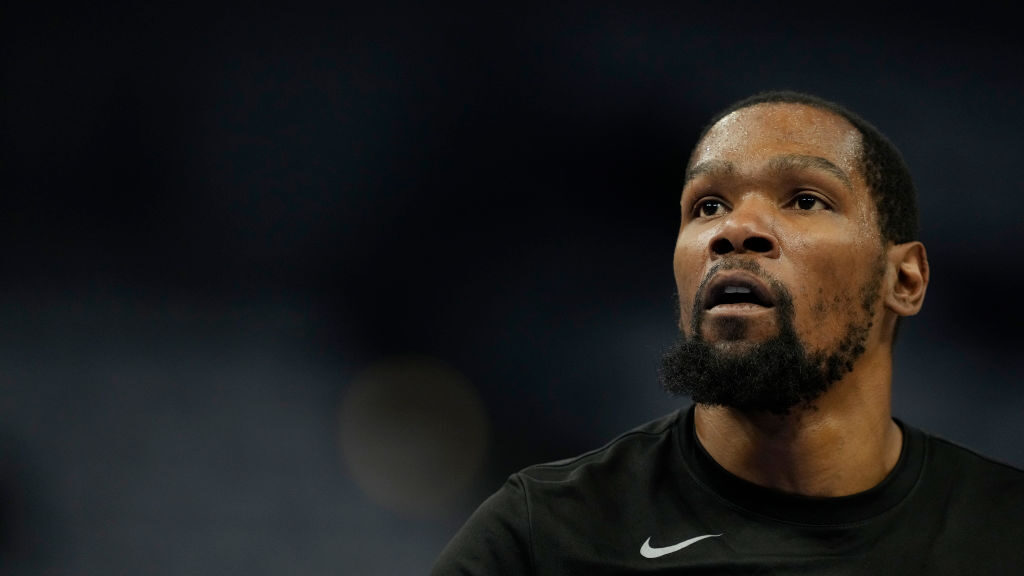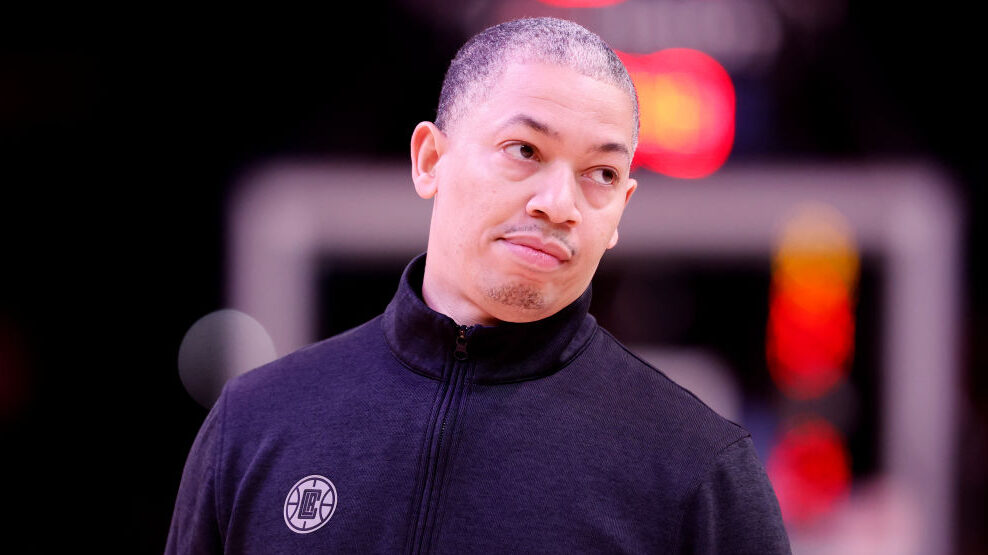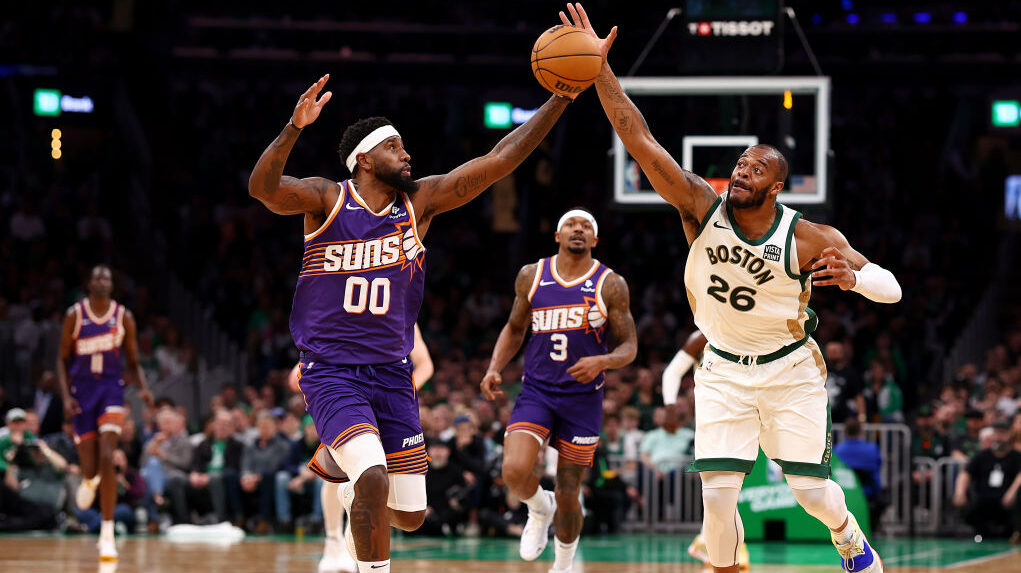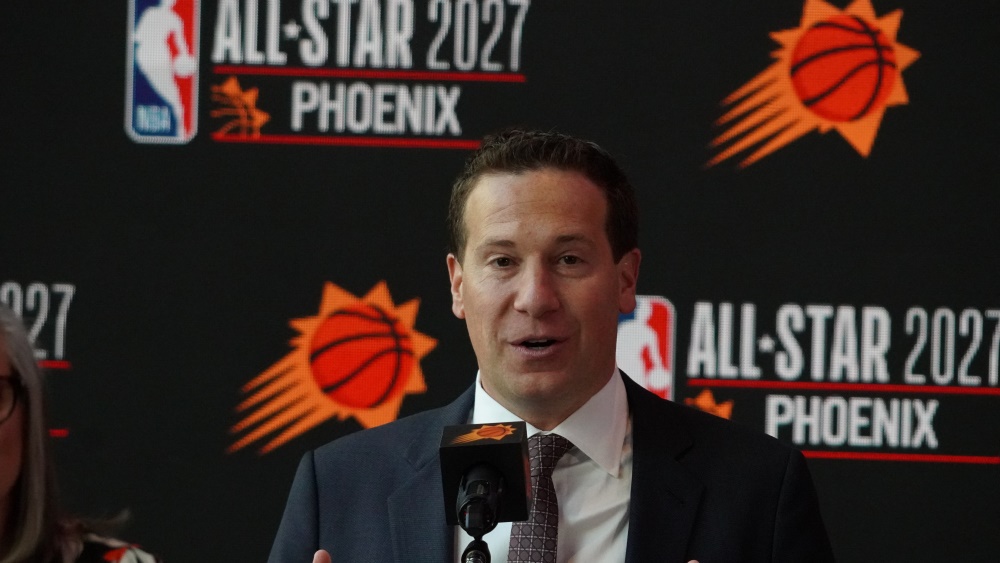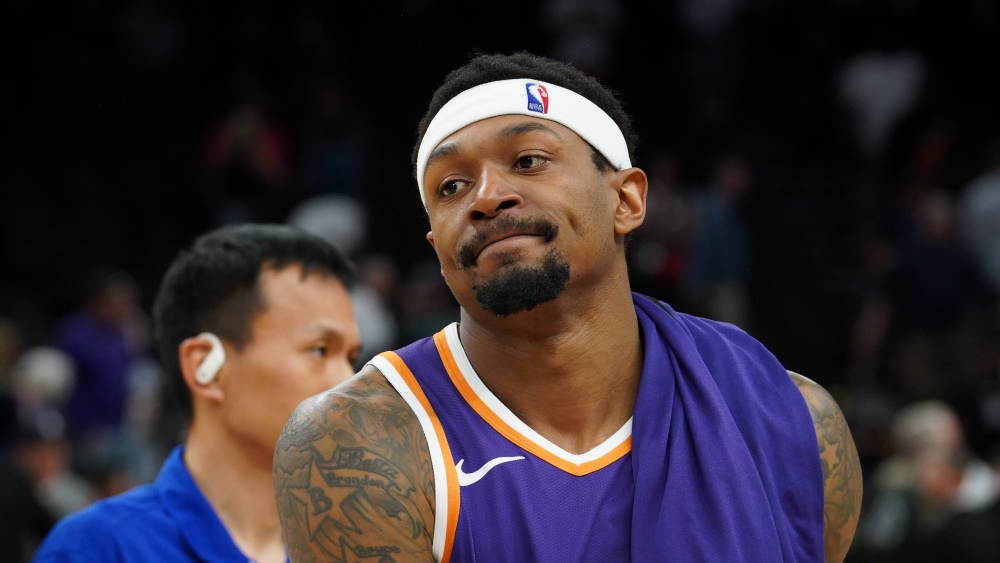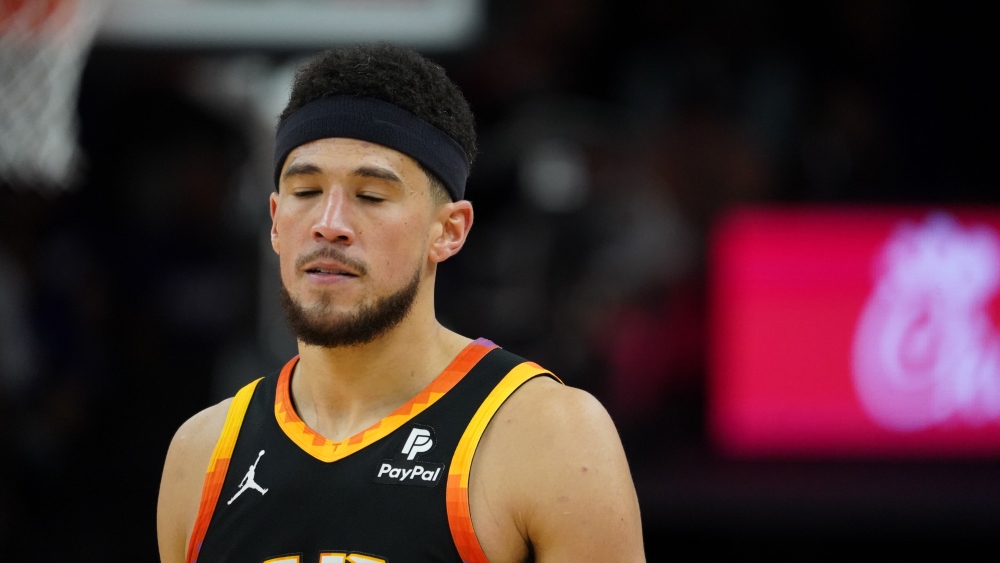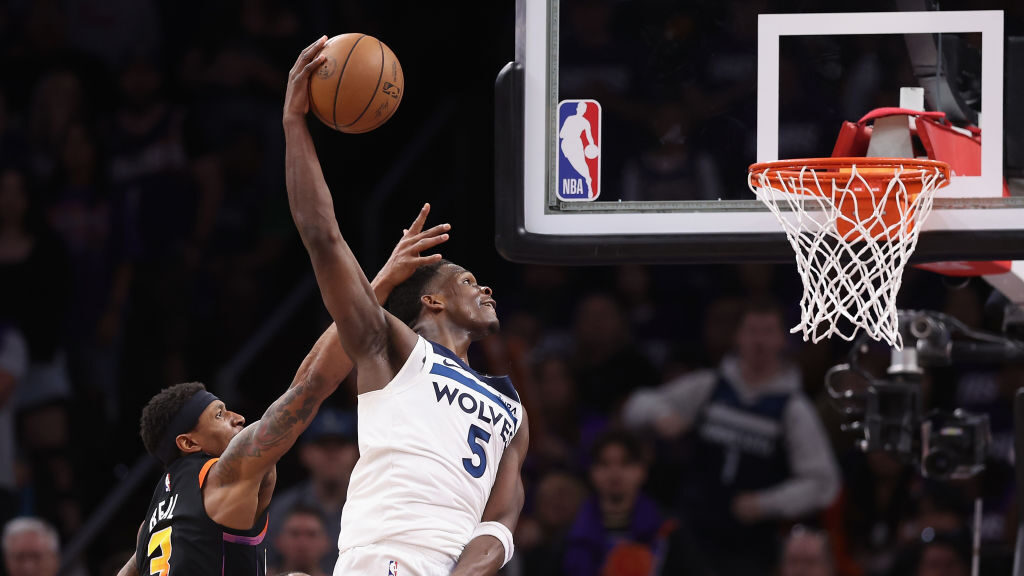What Suns have to replicate, fix to avoid 3-0 hole vs. T-Wolves
Apr 26, 2024, 6:26 AM | Updated: 6:30 am
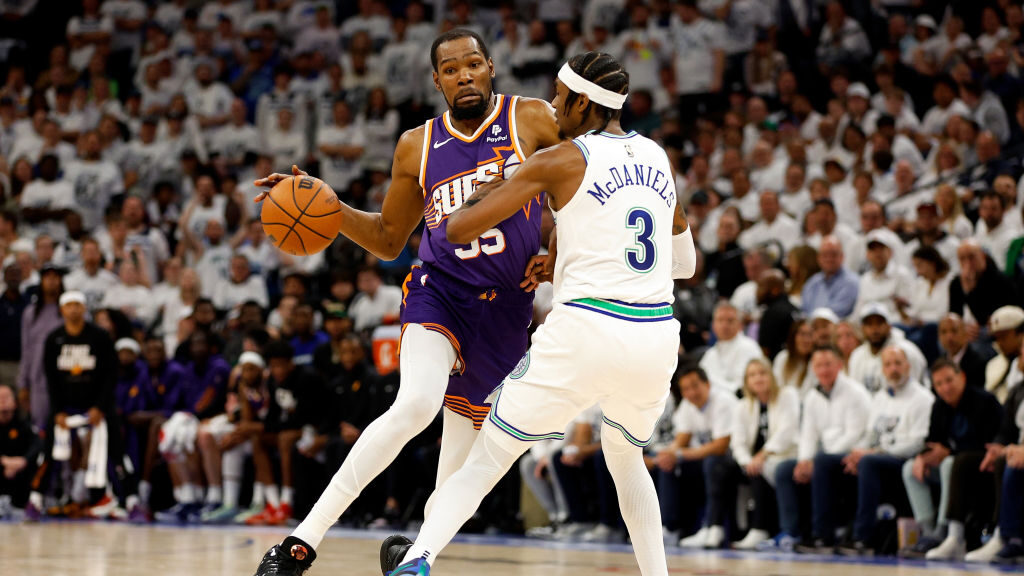
Kevin Durant #35 of the Phoenix Suns drives to the basket against Jaden McDaniels #3 of the Minnesota Timberwolves in the fourth quarter of game two of the Western Conference First Round Playoffs at Target Center on April 23, 2024 in Minneapolis, Minnesota. The Timberwolves defeated the Sun 105-93. (Photo by David Berding/Getty Images)
(Photo by David Berding/Getty Images)
PHOENIX — Every game for the remainder of the first-round series between the Phoenix Suns and Minnesota Timberwolves can be simplified down to just a few points.
Phoenix’s inconsistencies over the course of a full 48 minutes that inspired much pessimism in regards to their contender status were there in both matchups. It went as far as to if you were to add up the solid patches of the first two contests you’d get to, what, maybe 40 combined good minutes?
When the Suns offered up enough opportunities, Minnesota eventually pounced. The T-Wolves’ ability to hit a high gear and remain steady enough across other segments of the game will dictate things. They’ve done it back-to-back games.
Ultimately, the Suns’ poor stretches that are a certified constant now cap the ceiling of what’s possible going forward. Will Minnesota start to show real slippage in its own right? If it doesn’t, Phoenix requires a high-level performance from one of its stars and for the 3s to fall. It did not make that happen in either loss, outside of elite shot-making from Kevin Durant in Game 1, so the results have been ugly.
With that out of the way, in what will be frustrating for Suns fans to review, their team had plenty of chances in Tuesday’s Game 2.
One of them was the offensive start in the first quarter. As much as the majority of the discourse surrounding Phoenix has once again revolved around the need for a point guard (that sound you hear is me headbutting my desk repeatedly), the Suns’ offensive process made big strides. They responded to poor flow from Game 1 and created good looks.
Those shots, such as quality midrange opportunities for a trio that thrives in that zone, just didn’t go in. This was a 21-point first quarter that should have been in the 30s and that’s before getting to the turnovers.
The majority of these are inside individual matchups the Suns want and a point guard would be orchestrating to create. The shot-making team is supposed to make shots, and there were a few bad breaks like Eric Gordon’s missed 3 off a perfectly-executed drive to pull in Rudy Gobert or a Bradley Beal miscue on a dunk.
A realization to make when providing the point guard argument is it in a way suggests the Suns’ stars are ill-equipped to make this work. They absolutely are. The breaking point, however, has been never coming close to clicking into some synchronization of an offensive system they’re all committed to, one that is hyper-functional towards them and empowers the best parts of their games while also developing the required connectivity and continuity. That has been a huge failure.
Beyond that, Devin Booker, Durant and Beal have all countless times over the years when games get rocky for their teams stabilized it on their own with a brief, “Calm down everyone it’s going to be fine I got this” 11-2 type of solo run over a few minutes. Yes, they had point guards, but they didn’t need one because the ball was always in their freaking hands anyway. That point guard was standing in the corner while they went to work.
From our perspective in the Valley, Booker developed this skill years ago, really beginning to showcase it in the bubble. We’ve seen it a whole lot. It’s a matter of any of the three of them showing an ability to rise above the team’s current circumstances.
Gobert has been awesome through two games. And the fact remains that he is an exploitable player, an area where Phoenix isn’t finding much benefit from despite the possibilities. The Suns have to be aggressive in his direction when the moments arise.
“That’s a good balance to have,” Durant said of the trade-off between respecting Gobert and not over-thinking it when attacking him. “He’s such a great shot-blocker and just deters a lot of shots, just his presence alone deters a lot of shots. But also you gotta challenge him. He’s a great defensive player but there’s times where you’re gonna have to challenge him.”
While Gobert had success defending on the perimeter, the Suns didn’t take full advantage of him getting out there at all. They rarely triggered drive-and-kick offense with Gobert on them and Durant missed two layups at the rim.
When Minnesota briefly triggered the zone we saw in Game 1, another tool to utilize Gobert, Phoenix immediately turned it into quality looks from 3 for Beal and Durant that didn’t go down.
In terms of some success, Phoenix has turned to Booker’s nuisance role with a back screen on the big that we’ve seen plenty of in the past to open up other avenues.
“Yeah, I think so,” Durant said Thursday when asked if he liked the quality of shots the Suns got in Game 2. “In the playoffs, you’re gonna have to take tougher shots. … I like what we generated, we just have to do more of it.”
Phoenix has to take more than 22 3s, the total from Tuesday, and get the assist numbers in at least the mid-20s after a combined 35 (!) in the first two games (Phoenix reached that total in a single outing six times this year, by the way). But through those two games, we’ve seen enough evidence the Suns can prod the Timberwolves’ powerhouse defense in effective enough ways to be productive.
Going small is an easy tweak to improve both of those numbers but Phoenix apparently got skittish at the rebounding numbers from Game 1 and didn’t turn to it once on Tuesday, even though hardly any of that occurred when the Suns were without a center. As previously covered, there was a lot to like about how those lineups looked offensively in Game 1 and in general it is the only time this team looks like it is playing the way it was designed to.
Now let’s get to the turnovers.
Some nights it is passing where no one is, forcing it where someone is or when the basketball looks like it has been coated in some mysterious, slippery substance. The latter was the most prominent on Tuesday.
Here are all the Suns turnovers via a player mishandling the ball without much interference from a defender.
For a good team, you’ll see maybe one of those a night. Bizarre. And that was without including the handful of times a Suns player was stripped.
Phoenix had a strong defensive night when it wasn’t forced to recover off those giveaways. Beal was staying attached to Anthony Edwards as much as possible through a wonderful effort, with the shape behind him remaining intact to limit Edwards to 3-of-12 shooting and let his impact be dictated by 3-point shooters. The rebounding activity was more pronounced and there were a few spurts of really positive play.
Where things got away from the Suns was getting beat by Mike Conley and Jaden McDaniels, two very good NBA players who should also not swing playoff games offensively.
To start with McDaniels, his buckets are a tough watch because Durant has been up for it as an on-ball defender all season. The 23-year-old just caught Durant off-guard with how aggressive he was, which obviously shouldn’t serve as a tolerable excuse for allowing it to happen (unless this was the scheme and that would also be a big problem).
McDaniels made energy plays, knocked down open 3s and had some challenging touch shots around the paint. There were also these ones that were far too easy. One each were on Booker and Gordon while the other three are McDaniels going right at Durant.
The expectation is Phoenix will be more focused on McDaniels’ scoring ability. The lack of it on Tuesday cost them.
While Karl-Anthony Towns was going through his usual postseason foul trouble tornado and Edwards didn’t receive breathing room, Minnesota in the snap or a finger turned to Conley’s two-man game with Gobert. Its functionality doing just that was a big question going into this series and boy did Conley make it look like that question was foolish.
Brief aside, this is what great teams do. They not only adjust on the fly but execute to a high degree in those environments. Bravo to Minnesota on that front.
Empty side pick-and-roll is something we discussed in the past as a strength for the Suns and Minnesota turned to that concept often, resulting in a few of Conley’s baskets. To that execution point, Conley wasn’t just scoring off the same play. The variety was impressive.
The concern is how the Suns tighten up on that. They do not have a deep roster of reliable perimeter defenders, or much of a roster for that at all.
Conley got it rolling to set up Gobert and others.
Watch the first basket of each video again.
In the first, you’ll see Drew Eubanks not coming up to the level of the screen to cut off Conley, who has been a terrific pull-up shooter on 3s for a half-decade. Booker’s reaction under the basket seems to indicate that is what should have been done.
The second is Eubanks doing so a few possessions later before Booker’s seemingly the guy to step in front of Gobert before he passes that off to Royce O’Neale, the defender covering Edwards’ stroll across the baseline who is not in position either.
Great teams not only adjust on the fly but execute to a high degree in those environments. If the Suns can’t do that in this series, their season is over.

